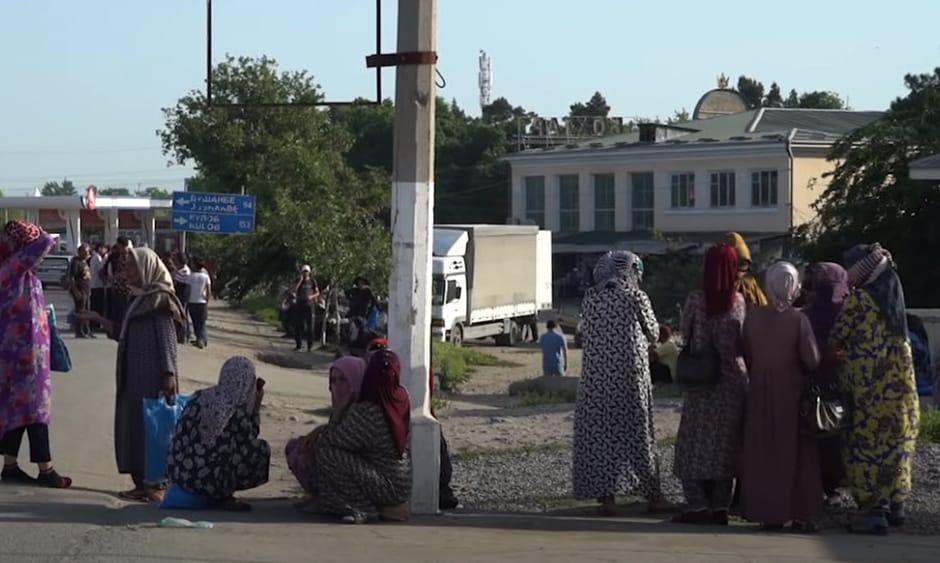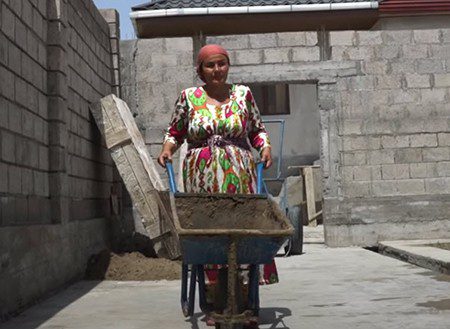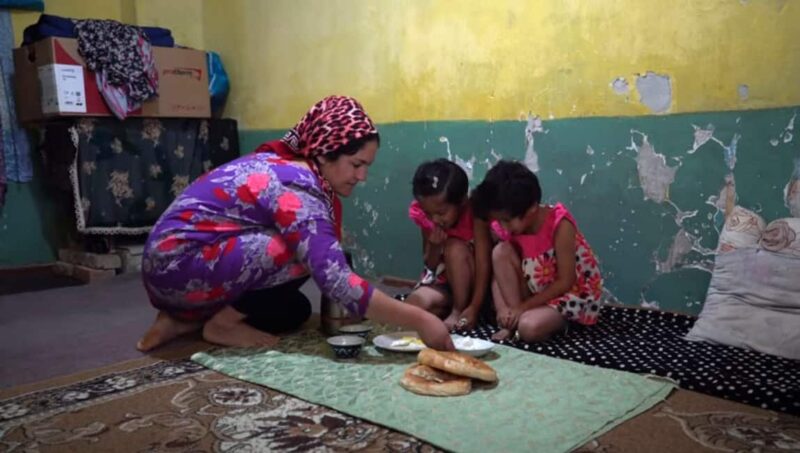With support from Internews, journalist and producer Mahpora Kiromova created a documentary film about the women of the mardikor bozor – women’s labor markets – in Tajikistan. These women, who do not receive any support from the state, typically receive a paltry $2-3 US per day for hard physical labor. The film highlighted their low incomes, poor living conditions, the lives of their children and low capacities of their schools, lack of healthcare, high divorce rate, and the associated stigma that follows them.
Women’s unemployment is rarely spoken of in Tajikistan, although according to the Agency of Statistics under the President of Tajikistan, women accounted for 49% of the country’s unemployed adults as of May 2020. Many of these unemployed women have been left on their own with children after their husbands went abroad as labor migrants and did not return. These vulnerable women, stigmatized by a society that considers it to be their fault that their husbands have “abandoned” them, have been forced to seek out work at the mardikor bozor now appearing in the country’s major cities.

Documentary goes viral, changes attitudes, and gets results
The film was released in Tajik (with English and Russian subtitles) on July 2, and by the end of 2020 had accumulated over 144,000 views, 1,300 comments, 680 reposts, and 3,700 reactions across YouTube, Facebook, and Instagram – impressive numbers for Tajikistan. The language of the film made it more accessible to a greater portion of the population, especially those in rural areas.
The film was also featured in the regional Femagora Central Asia film festival in September, and in ArtDocFest in Moscow in December. Kiromova won “Best Human Rights Defender of 2020” from the Tajik Bureau of Human Rights and Rule of Law.
“I was moved to tears when the mother was forced to lock the door on her children, daughters. They should be in kindergarten getting an education,” posted viewer Nargis Saadiia on YouTube.
Although some audience reactions revealed ingrained prejudices and negative views of the women, the overwhelming majority showed shock, empathy, and a desire to help. Individual citizens, media outlets, civil society organizations, and the authorities have been inspired to take concrete actions to improve the women’s lives.
“This documentary does a great job of showing how important the role of women is in society. As mothers, they give all their love and attention to their children, and as single parents they endure all sorts of hardship and difficult work to make a living,” posted viewer Nastarna Fadaei Heidari on YouTube. “Education matters, and with the help of the government as well as non-governmental organizations we can try to at least teach a kind of skill to them so they can find jobs and feel fruitful in society.”
Donations and educational opportunities begin to address the women’s plight
Asia Plus, where Kiromova had worked as a journalist, covered the story about the film and raised 30,000 TJS (about $3,000), as well as a huge amount of food, clothing, toys, and household appliances and distributed it among the families featured in the documentary.

A local NGO, Zan va jomea (Women and Society), provided 100 scholarships to women in Bokhtar to take vocational training courses to develop their professional skills and increase their earning potential. Finally, the local authorities in Bokhtar built a sunshade canopy for the labor market to shelter the women there from the harsh sun while waiting for work. The Minister of Labor, Migration and Employment of Tajikistan, Shirin Amonzoda met and talked with the women who were featured in the documentary, under the new canopy, about opportunities for them to further their education and training.
The care from society and attention of authorities already represents a shift in how these women are viewed and treated in Tajikistan.
“To the author, please share the contacts of these Great women. Inshallah we will help them with something,” pledged viewer TJ Shamolov on YouTube.
Internews’ Central Asia Media Program (MediaCAMP) is supported by a grant from USAID.
(Banner photo: A mother scrapes together a few dollars to support her children after her husband left to work in another country and never returned. Credit: Mahpora Kiromova)
